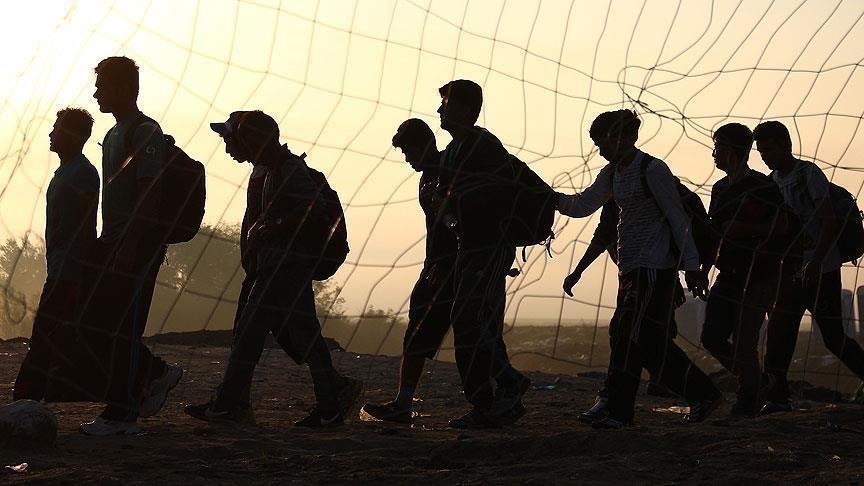Africa ‘big challenge’ in climate migration crisis: UN weather agency chief
Climate migration ‘risk in future is clearly much bigger,’ head of World Meteorological Organization tells Anadolu

- Climate migration ‘risk in future is clearly much bigger,’ head of World Meteorological Organization tells Anadolu
- Climatic conditions in northern, southern parts of Africa will be ‘more difficult,’ says Petteri Taalas
GENEVA
When it comes to the increasingly critical phenomenon of climate migration, Africa represents a “big challenge” for the world, according to Petteri Taalas, secretary-general of the UN’s World Meteorological Organization (WMO).
“The big challenge is what’s going to happen in Africa,” Taalas told Anadolu in an interview.
“The climatic conditions, especially in the northern part of Africa and the southern part of Africa, are going to be more difficult. So, Africa is clearly an area where this refugee potential is growing. You already see it now.”
There are already so many people making perilous journeys to reach European countries, he said, warning that “the risk in the future is clearly much bigger.”
For Africa, he said the continent’s burgeoning population will be another key factor in climate migration over the coming years.
“There’s a chance that we would see even up to 4 billion inhabitants in Africa by the end of the century, besides the current 1 billion,” he said.
On the World Bank’s assessment on climate migration figures, the WMO chief said it is difficult to come up with exact numbers.
A 2018 World Bank report on climate migration projected that without urgent national and global climate action, countries in South Asia, sub-Saharan Africa and Latin America could see more than 140 million people move within their borders by 2050.
“But it’s clear that the potential is growing every year because of population growth and also the negative impacts of climate change,” Taalas said.
No way back to last century’s climate
Taalas reiterated that the world is heading toward a “more difficult climate,” but stressed the need to avoid unwanted doomsday projections.
“We are not going to see the end of the world because of climate change, but if we are not able to limit our consumption of fossil fuels, then we will see a fairly dark future,” he said.
“In many parts of the world, living conditions, and also the economic conditions, will be more difficult than today.”
Given the dangerous extent of carbon emissions in the atmosphere, the world will keep feeling the negative impacts for “even thousands of years,” he said.
“There’s no return back to last century’s climate anymore,” he added.
Heat will keep claiming lives in Europe
Taalas said he does not expect a decline in heat-related deaths in Europe, saying last summer’s heat wave and its route were very similar to the situation a year ago.
According to him, heat waves claimed 75,000 lives in Europe in 2003, 55,000 in 2010 and more than 60,000 last summer.
On the international community’s climate action obligations, he particularly called on members of the BRICS bloc to meet the targets laid out in the Paris Agreement.
BRICS currently comprises of Brazil, Russia, India, China and South Africa, but it has recently invited six countries – Argentina, Egypt, Iran, Ethiopia, Saudi Arabia and the UAE – to join the bloc.
Taalas said greenhouse gas emissions are increasing in China and India, but declining in the US, Japan, Singapore and many European countries.
There is also good news from Africa in this regard, where some countries have brought down their emissions, he said.
“For example, in Kenya, 93% of energy is produced from renewable energy, mostly using solar, wind and hydroelectricity,” he added.
Anadolu Agency website contains only a portion of the news stories offered to subscribers in the AA News Broadcasting System (HAS), and in summarized form. Please contact us for subscription options.







